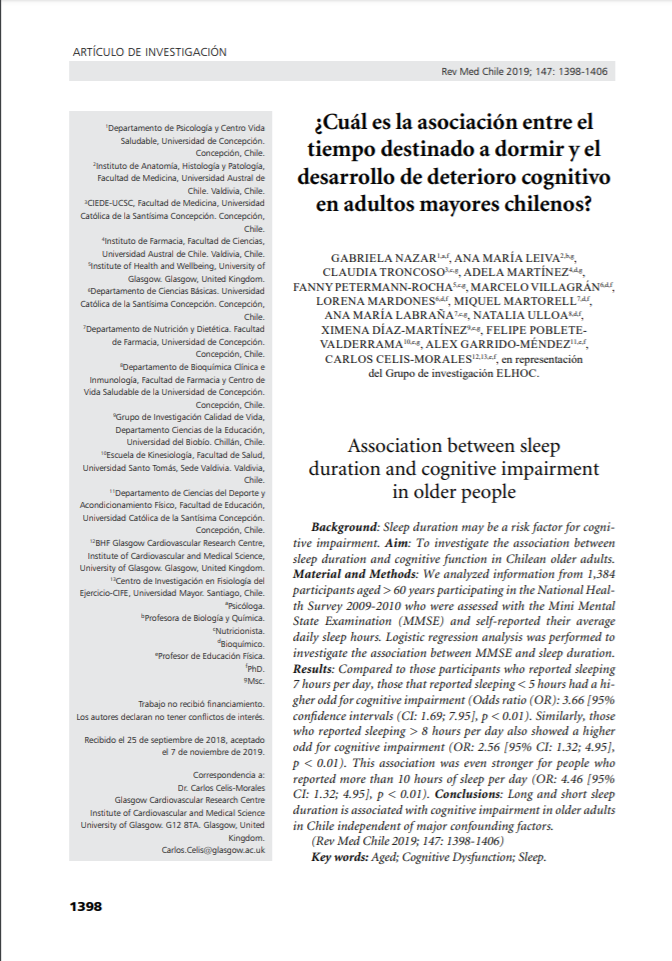Association between sleep duration and cognitive impairment in older people

Fecha
2019Autor
Celis-Morales, Carlos [Univ Mayor, CIFE, Santiago, Chile]
Nazar, Gabriela; María Leiva, Ana; Troncoso, Claudia; Martínez, Adela; Petermann-Rocha, Fanny; Villagrán, Marcelo; Mardones, Lorena; Martorell, Miquel; María Labrana, Ana; Ulloa, Natalia; Díaz-Martínez, Ximena; Poblete-Valderrama, Felipe; Garrido-Méndez, Alex
Ubicación geográfica
Notas
HERRAMIENTAS
Acceda a títulos restringidos
¿Cómo descargar?Resumen
Background: Sleep duration may be a risk factor for cognitive impairment. Aim: To investigate the association between sleep duration and cognitive function in Chilean older adults. Material and Methods: We analyzed information from 1,384 participants aged > 60 years participating in the National Health Survey 2009-2010 who were assessed with the Mini Mental State Examination (MMSE) and self-reported their average daily sleep hours. Logistic regression analysis was performed to investigate the association between MMSE and sleep duration. Results: Compared to those participants who reported sleeping 7 hours per day, those that reported sleeping < 5 hours had a higher odd for cognitive impairment (Odds ratio (OR): 3.66 [95% confidence intervals (CI: 1.69; 7.95], p < 0.01). Similarly, those who reported sleeping > 8 hours per day also showed a higher odd for cognitive impairment (OR: 2.56 [95% CI: 1.32; 4.95], p < 0.01). This association was even stronger for people who reported more than 10 hours of sleep per day (OR: 4.46 [95% CI: 1.32; 4.95], p < 0.01). Conclusions: Long and short sleep duration is associated with cognitive impairment in older adults in Chile independent of major confounding factors.
URI
https://doi.org/10.4067/s0034-98872019001101398http://repositorio.umayor.cl/xmlui/handle/sibum/6541
Coleccion/es a la/s que pertenece:
Si usted es autor(a) de este documento y NO desea que su publicación tenga acceso público en este repositorio, por favor complete el formulario aquí.